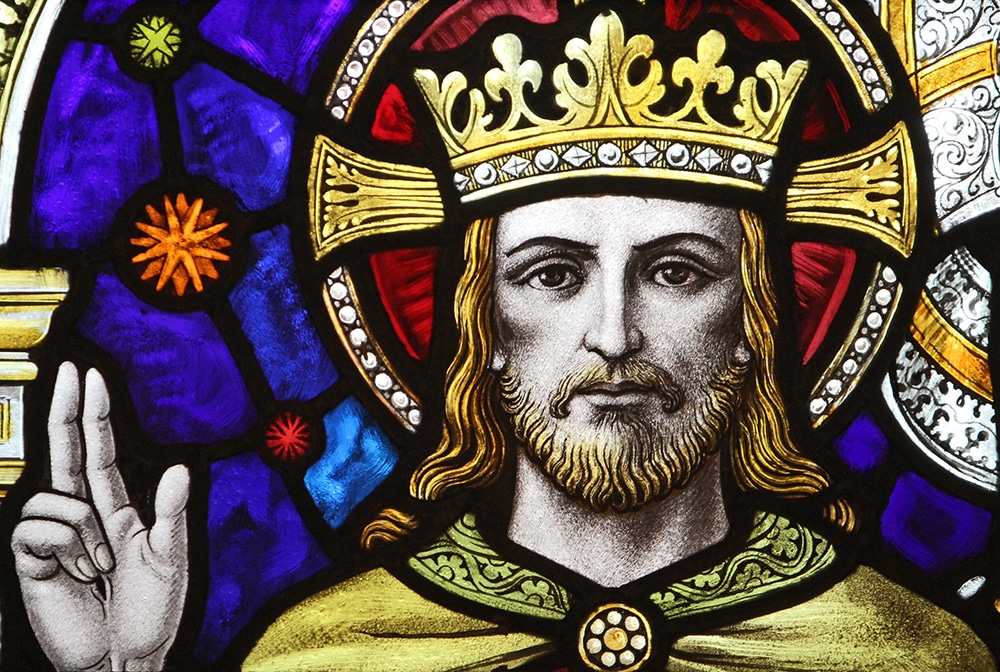
The equation of politics with salvation should be troubling for Catholics. Certainly, the common good is definitively at stake in these elections. The unborn must be protected against abortion; the poor must be cared for by society; racism must be fought against; immigrants must be protected against injustice and violence; religious freedom should be respected.
Politicians should promote the common good as best as they can determine as limited creatures, incapable of knowing the results of all their actions. If they don’t, it’s the job of Catholics to take them to task for this negligence.
| Nov. 24 — The Solemnity of Our Lord Jesus Christ, King of the Universe |
|---|
|
2 Sm 5:1-3
Ps 122:1-2, 3-4, 4-5
Col 1:12-20
Lk 23:35-43
|
Nonetheless, this or that politician will not save us. They can’t. Human beings suffer from a deeper malaise than the politician can respond to. We suffer from what St. Augustine calls the lust for domination. We don’t only want to be right or prudent. We want to be gods.
The solemnity of Christ the King is a prophetic day in the United States, especially as contentious election cycles loom. In the Gospel of Luke, Jesus is mocked by those obsessed with the lust for domination. The soldiers mock him, asking him to reveal his power. The rulers sneer, “If you’re so great, save yourself!”
The Passion narratives highlight how the Roman rulers engage in a pathetic power play, one related to the lust for domination. Pontius Pilate does not believe in truth. He is just playing a game, where the most important thing is that he makes the final decisions, not bending to the religious desires of the Jewish authorities. You could almost hear Pilate saying to himself: “Doesn’t this worthless man, this man who calls himself the son of man, realize that I’m the only one who can save him! Pay homage, and it’s over.”
In Luke, it’s only the good thief who recognizes the actual source of power. He turns to Christ, the only source of salvation, asking to be remembered when our Lord Jesus comes into the kingdom. He professes faith in Jesus as the savior, not Pilate, not his fellow thief, not even those who could release him from his suffering. Jesus Christ alone is king.
Catholics who engage in the public square would be wise to commit ourselves to the kingship of Jesus. This politician or that politician — they won’t save us.
Jesus Christ alone is king. And that ironically gives us our power. We stand in the public square and acknowledge the politics of this age, dominated by suspicion and violence, by polling rather than the pursuit of truth, which is a symptom of the lust for domination. It’s evidence that we’re sin-sick. Something’s wrong.
The solution won’t be found through those who bear the mark of the elephant or the donkey. It will only be found in the self-giving love of the God-man, Jesus Christ, who forgives sin, transferring us from the age of darkness into the kingdom of light and peace.
The Church should be this space. It isn’t always, as the names of McCarrick and Bransfield remind us. The Church, in its leaders and members, may be obsessed with this lust for domination.
And yet, our only hope is found in this Church of bumbling sinners, moving ever closer to redemption, not through our own ingenuity. But through Christ, our king, the only king.
Come, Lord Jesus, king of heaven and earth.
Timothy P. O’Malley, Ph.D., is the director of education at the McGrath Institute for Church Life at the University of Notre Dame.





